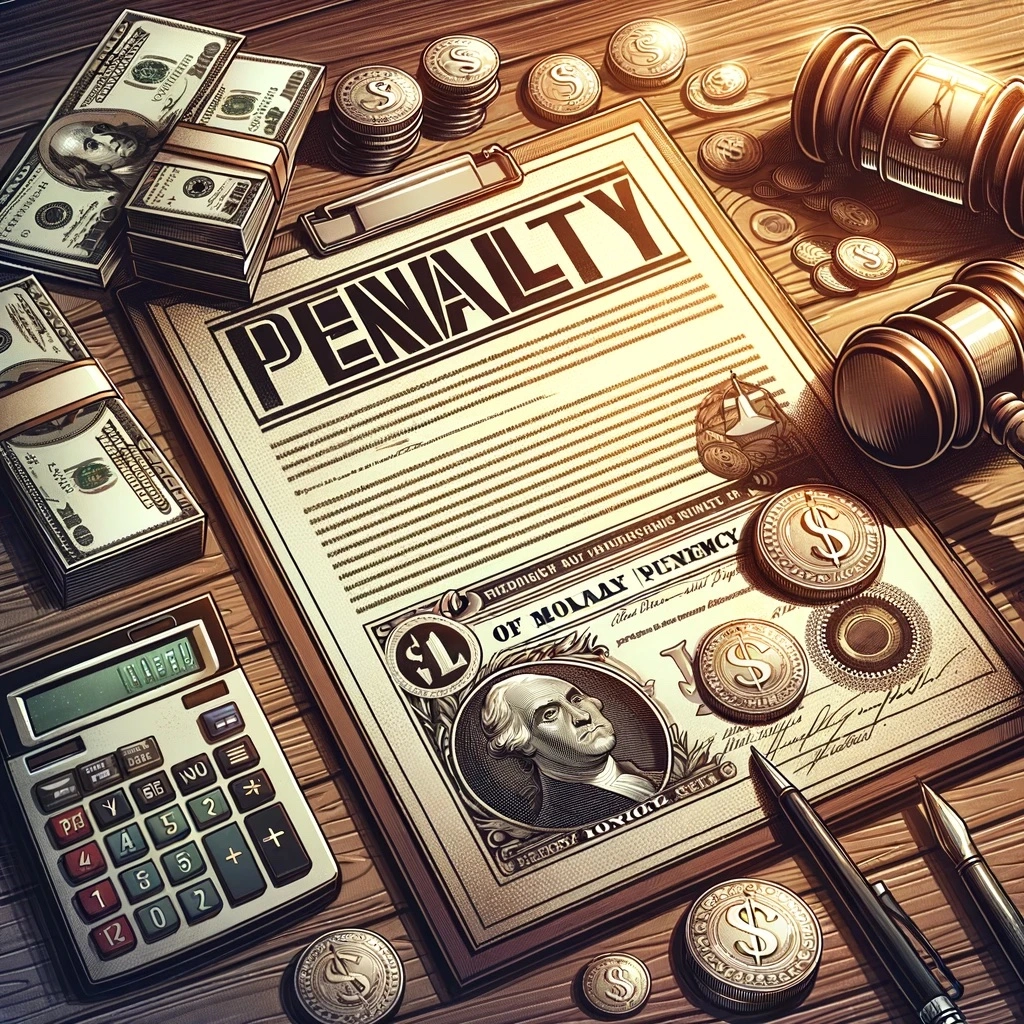Breaking the Rules: Penalties In PA Workers’ Comp
After a work related injury, workers have many concerns. Will workers’ compensation insurance cover and help with my medical treatment and lost wages? What if the employer and the insurance carrier do not do the right thing? What about penalties for violations?
Here, we will cover the penalties imposed for various violations of the Workers’ Compensation Act. We will look at penalties and the procedures for enforcing them. Specific situations lead to these penalties and, though some entities receive exclusion. We hope to give injured workers the insight they need to manage their claims.

Monetary Penalties
Monetary penalties help to ensure adherence to the Pennsylvania workers’ compensation laws. These penalties serve both as a deterrent against non-compliance and as a remedy for the wronged party.
Penalty Limits
According to Section 435 of the Act, penalties cannot exceed 10% of the total compensation awarded. This includes interest. However, in cases of unreasonable delay, penalties may escalate up to 50%.
Applicable Amendments
Legislative amendments, as of August 23, 1996, have increased penalties for unreasonable or excessive delays from previously lower percentages. These amendments apply to acts committed post-amendment, regardless of the injury date.
Criteria For Imposing Penalties
To impose a penalty, a clear violation of the Act or the associated procedural rules must exist. This can include administrative oversights, failure to pay benefits timely, or inaccuracies in the benefits paid. Each violation may come under scrutiny.
Who Imposes Penalties?
When it comes to workers’ compensation, the enforcement of penalties involves several layers.
As the governing body, the Department of Labor and Industry has the power to impose penalties for violations. Additionally, the Workers’ Compensation Appeal Board and the courts also hold this authority. Most common, a judge will impose a penalty.

Workers’ Compensation Judges (WCJs)
WCJs play a crucial role as the primary adjudicators. They assess the need for penalties in individual cases. In addition, they also determine the extent of the penalty for each violation.
Steps In The Penalty Process
The process of imposing penalties requires adherence to due process.
Violations
The first step involves proving a violation of the Act or procedural rules. This requires gathering and presenting the evidence of non-compliance.
Notice And Hearing
The law requires that all parties involved receive notice of the potential penalties and a chance to respond. This maintains the integrity of the legal process.
Discretion
WCJs have significant discretion in determining whether to apply penalties. The WCJ’s decisions consider a few main elements. For example, they will look at the nature of the violation and the impact of it on the injured worker. They will also take into account the past conduct of the violating party.
Common Examples
Delay Of Payment
Sometimes an employer or their insurer will not start payments within the stipulated 30 days after it becomes due. In this instance, a WCJ may impose penalties.
Failure to Comply
Non-compliance with a WCJ’s order, especially regarding compensation or medical expenses, frequently results in penalties.
Mishandling Payments
Issues such as sending checks to an outdated address can result in a penalty. Further, the incorrect calculation of interest due can also trigger a penalty.
Exclusions
Certain entities face exclusion from an imposed penalty under the Act.
Workers’ Compensation Security Fund
Not considered an “insurer” under the Act, this fund has exemption status from penalties.
Uninsured Employers Guaranty Fund
This fund aims to provide relief in situations of uninsured employers. As it plays a protective role rather than punitive, this fund also possesses exemption from penalties.
The Wrap Up
After a workplace injury in PA, injured workers may struggle to make sense of the workers’ comp system. Workers should know what workers’ comp insurance entitles them to and how penalties work to make the most of their claim. Recognizing when penalties can come into play and knowing the exclusions can significantly impact the outcome of a claim.
Consult with a workers’ comp lawyer to ensure the protection of your rights and interests. If you have questions about your claim, let us help. Reach out to our offices 24/7 for a free case evaluation (215) 609-4183




